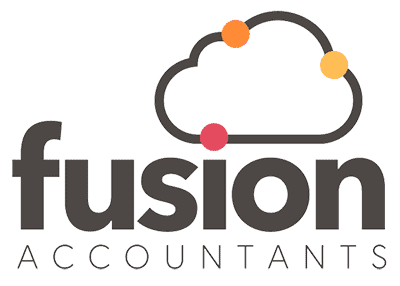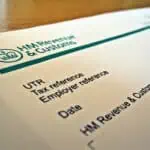How to prepare Year-end accounts for limited companies
Reading Time:
Year-end financial reporting is required for limited companies. You must inform HMRC and Companies House at the end of the financial year. Financial year-end reporting is required by law to ensure tax compliance and provide accurate information to the public, banks, shareholders, and potential investors.
The date your company’s accounting period concludes is known as the ‘Year End.’ This is because every limited company has its financial year, which begins on the firm’s ‘anniversary’ (the date you began trading, as specified when you registered with Companies House). It ends the day before that date in the following calendar year – this is different from the tax year, which runs from April 6 to April 5.
Operating as a limited company is one of the most tax-efficient ways of trading and is a popular choice for many businesses because it can legitimately reduce the tax you pay. This makes selecting an excellent limited company accountant a crucial decision, and this is where we can help by giving you a cost-effective and complete accounting solution.
What information do I need to report?

Financial year-end reporting provides HMRC and Companies House with valuable information about your accounting period. HMRC must receive your Company Tax Return, and Companies House must receive your Statutory Accounts.
It may take a little longer than a year if this is your company’s first accounting period. You will need to file a second tax return to the account
Company Tax Return
You must submit your Company Tax Return form (CT600) to pay taxes. Details of your company’s turnover, costs, tax allowances and profit are included in the company’s Statutory Accounts. Your corporation tax bill will be calculated based on this information.
Statutory Accounts
Your Statutory Accounts (or Annual Accounts) are sent to Companies House. They explain the company’s financial operations in that year, primarily for HMRC and its shareholders. Producing statutory accounts also helps to fully appreciate your day-to-day operational costs and other critical financial factors as a business owner.
They are a summary describing overall outgoings and income rather than individual transactions and are made up of the following:
| Income Statement | Your profit or loss for the accounting period |
| Statement of Financial Position | The overall value of your company will include your balance sheet, a profit and loss statement, notes about the accounts, a director’s report, an accountant’s, or an auditor’s report. |
| Director’s report (not required for micro-entities)* | A report on the state of the company by the board of directors |
* Being a micro-entity means you do not need to prepare complex accounts, and you can send more straightforward balance sheets to Companies House instead.
Key deadline financial reporting dates
Please note that as you are submitting different documents to two different authorities, there are a number of different deadlines you need to keep in mind.
| What you need to file | Your deadline date |
|---|---|
| Send your first accounts to Companies House | 21 months after your company’s registration date |
| File subsequent annual accounts with Companies House | 9 months after the end of your company’s financial year |
| Pay corporation tax to HMRC or inform them there is nothing to pay. | 9 months and 1 day after the end of your accounting period |
| File your Company Tax Return with HMRC | File your Company Tax Return with HMRC |
Because the deadline for paying corporation tax is shorter than the deadline for completing your Company Tax Return, your business may pay tax before filing its tax return. Your accountant can help estimate the amount of tax due and then resolve any overpayment at a later date. We recommend filing your tax return on time and not waiting until the deadline to guarantee you pay the correct amount of tax.
What happens if I miss the year-end reporting deadline?
To help encourage you to file your paperwork on time, Both HMRC and Companies House impose fines if you miss deadlines. These increase with time, so make sure you plan ahead and file on time.
Your company can even be struck off the register for failing to report, so take your obligations seriously. You’ll receive an automatic penalty notice if you are late in filing your accounts, and will have to pay a fine depending on how late they are, as shown below:
| Lateness of filing | Fine payable |
|---|---|
| Up to 1 month | £150 |
| 1 to 3 months | £375 |
| 3 to 6 months | £750 |
| 6 months+ | £1,500 |
What other reporting duties do I have?
Although not legally part of year-end reporting, it is the perfect opportunity to perform other reporting responsibilities that might benefit the smooth running of your business financials. These would be your VAT returns and your Confirmation Statement.
VAT returns
If your business is VAT registered, you will almost certainly have a VAT return due at the end of the fiscal year. VAT returns are not frequently considered part of a business’s year-end, but they frequently coincide with one.
Confirmation Statement
Annually, you are required by law to update your company details with Companies House (failure to do so may be deemed a criminal offence). You must file the statement within 14 days of the due date, which is one year after the date of incorporation, or the last statement filed. Even if your business is dormant, you must comply with this requirement.
Our Year-End accounting checklist

Year-end reporting requires a lot of time, data processing and planning, so make sure you do frequent backups of your accounts and tax returns, so if you lose data, you can easily pick up from where you left off.
Our five simple steps will take away the hassle and help you quickly prepare and file your Company Tax Return and Annual Accounts with HMRC and
1. Do all your pre-planning preparation
Allow sufficient time to prepare for your year-end. Make sure you have records for everything at least a month in advance – this may include obtaining account statements from suppliers, copies of bank and credit card statements and records of any other revenue you receive. As a result, orders and invoices will be chased, expenses are filed, expenditures are reduced, and all relevant documentation is easily accessible as and when you need it.
2. Gather together your paperwork
Remember that your accounts will require supporting documentation including, bank statements, income records, invoices, and receipts. Therefore, gather all of your paper and electronic papers to ensure you have all your financial data to hand if disputed.
Remember: You must retain company records for a minimum of six years after the end of the accounting period to which they relate.
3. Chase any debts
Unpaid bills can cause severe problems at year-end, so chase any debtors well in advance so you can credit your bank with as many payments as possible.
4. Do any expenses housekeeping
The more business expenses you declare, the less profit you must pay in Corporation Tax.
5. Is your employee data up to date?
Payroll, benefits, and expenses are simple to miscalculate when recruiting all year-round. In addition, if an employee claims costs and fails to give the right receipts, you could be liable for tax or NI errors.
Conclusion
For a stress-free and accurate year-end reporting process, hire an experienced and knowledgeable accountant. Fusion Accountants in London aims to finish your annual accounts within 1–2 weeks after receiving your information, and we will always file your accounts with HMRC and Company House on time.






